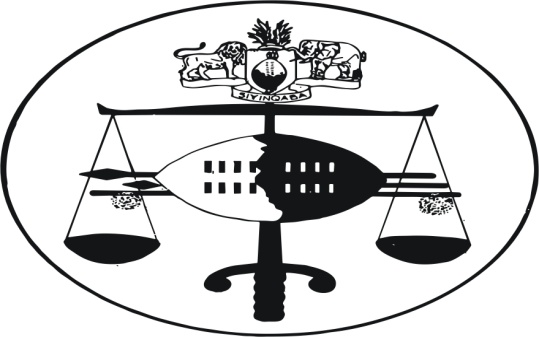
IN THE HIGH COURT OF SWAZILAND
JUDGMENT
Case No: 62/09
In the matter between:
COMPREHENSIVE CAR HIRE (PTY) LTD PLAINTIFF
and
BONGANI MAMBA DEFENDAT
Neutral citation : Comprehensive Car Hire (Pty) Ltd and Bongani Mamba (62/09) [2012] SZHC 247 (19 OCTOBER 2012)
Coram : MABUZA J
Heard : 6 FEBRUARY 2012
Delivered : 19 OCTOBER 2012
Summary : Practice – Summary judgment – Time for – Plaintiff’s application
for summary judgment delivered after filing and delivery of plea by Defendant – Defendant opposing same under Rule 30 as being an irregular step. Plaintiff not precluded by Rule 32 from applying for and obtaining summary judgment after plea – Defendant’s application under Rule 30 dismissed with costs.
[1] The Plaintiff herein issued summons against the Defendant for:
Payment of the amount of E25,478.00;
Interest at 2% per month from the date on which the debt became due.
Cost of suit.
[2] The Defendant filed a notice of intention to defend after receiving the summons and the Plaintiff followed up with declaration which was filed on the 21st April 2010. The Defendant’s plea was served on the plaintiff’s attorneys on the 8th July 2010.
The Plaintiff thereafter filed an application for summary judgment dated 3rd August 2010 for payment of the sum of E25,478.00; interest and costs.
[3] Instead of filing an affidavit resisting summary judgment the Defendant instead filed an application in terms of rule 30 for an order as follows:
That the Plaintiff’s application for summary judgment dated 3rd
August 2010 be set aside as an irregular step; and
Costs.
[4] The defendant’s complaint is that the Defendant filed his plea as far back as the 8th July 2010 and that the case the Plaintiff was precluded from applying for summary judgment in view of Rule 32.
[5] The hearing before me is in respect of the rule 30 application.
[6] At the hearing hereof Mr. Mlangeni for the Defendant argued that the filing of the application for summary judgment was an irregular step and the Plaintiff could not ignore the Defendant’s plea and pretend that it did not exist. He further argued that the summary judgment procedure because of its stringent nature effectively closed the door to a Defendant who had a bona fide plea and there were other ways of dealing with what the Plaintiff may have perceived to have been a bad plea in law such as striking out.
[7] Mr. Magagula for the Plaintiff on the other hand argued that it was incompetent for the Defendant to challenge the summary judgment application by using Rule 30 as the Plaintiff was well within its rights in applying for summary judgment. To fortify his argument Mr. Magagula cited to me the case of Vesta Estate Agency v Schlom 1991 (1) S.A. 593 (c).
[8] Rule 32 (1) reads as follows:
“Where in an action to which this rule applies and a combined summons has been served on a defendant or a declaration has been delivered to him and that Defendant has delivered notice of intention to defend, the plaintiff may; on the ground that the defendant has no defence to a claim included in the summons, or to a particular part of such a claim, apply to the court for summary judgment against that defendant”.
[9] It is not disputed that the Defendant’s plea was delivered before the Plaintiff delivered its application for summary judgment. Is that a bar to the latter application? I think not. In the case of Vesta Estate Agency Tebbutt J had the following to say at page 595 of his judgment:
“Indeed, the nature of the plea and the time and circumstances of its filing may afford good ground of or an application for summary judgment.”
[10] I align myself with the above comments especially since the Rule referred to does not preclude an application for summary judgment after plea. Mr. Mlangeni argued that there were other methods that the Plaintiff could use to deal with a plea perceived to be bad in law such as striking out. I disagree, the act of striking out would only unnecessarily lengthen the process for a Plaintiff see also Khan v South African Oil and Fat Industries Ltd 1923 NPD 99; it was held by a full bench of that division that summary judgment could be applied for and obtained even after a plea had been filed. See also McLardy v Slateum (1890) 24 QBD 504 (CA); see Jones and Buckle: The Civil Practice of the Magistrates’ Courts in South Africa (7th ed Vol 2) at 97.
[11] Rule 32 further requires a Defendant who is faced with an application for summary judgment either to provide security for any judgment including costs that may be given or to deliver an affidavit which must set out the material facts to satisfy the court that he has a bona fide defence to the action and disclose fully the nature and grounds of such defence. The Defendant has regrettably not exercised any of the options available to him in terms of this Rule.
[12] I find therefore that the delivery of a plea is no bar to a subsequent application for summary judgment and that the Defendant’s application in terms of Rule 30 is hereby dismissed with costs.
[13] The Defendant is ordered to file his affidavit resisting summary judgment within seven (7) days of receipt of this order and the Plaintiff is hereby given leave to file its replying affidavit thereto if so required.
___________________________
Q.M. MABUZA
JUDGE OF THE HIGH COURT
For the Applicant : Mr. Magagula
For the Respondents : Mr. Mlangeni
6
Cited documents 0
Documents citing this one 2
Judgment 2
| 1. | Bhembe v Mthethwa (1675 of 2015) [2016] SZHC 125 (19 July 2016) | 1 citation |
| 2. | Kukhanya (Pty) Ltd v Hlophe (915 of 2015) [2017] SZHC 143 (12 July 2017) | 1 citation |